Posted on 12/21/2023
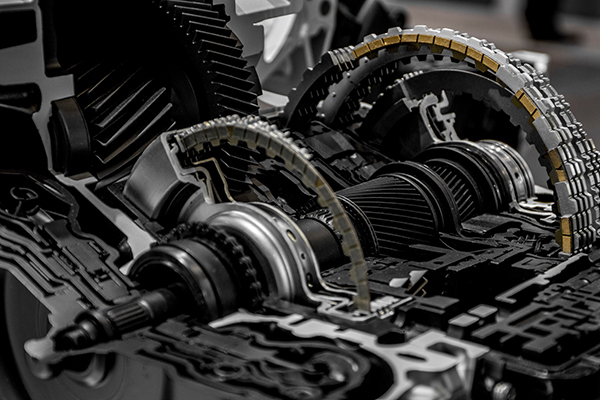
Your automatic transmission effortlessly glides through gears, ensuring a seamless and enjoyable ride. Yet, this vital component often escapes the attention it deserves in the realm of car maintenance. If you continue reading, you will learn some valuable tips and tricks to keep your automatic transmission running smoothly and efficiently. By following these guidelines, you can maintain the health of your transmission and avoid costly repairs in the future. Regular Fluid Checks and Changes Ensuring it's at the right level and in optimal condition is paramount. Regularly check the transmission fluid using the dipstick and follow the manufacturer's recommendations for fluid changes. Fresh, clean fluid helps maintain proper lubri ... read more
Posted on 11/30/2023
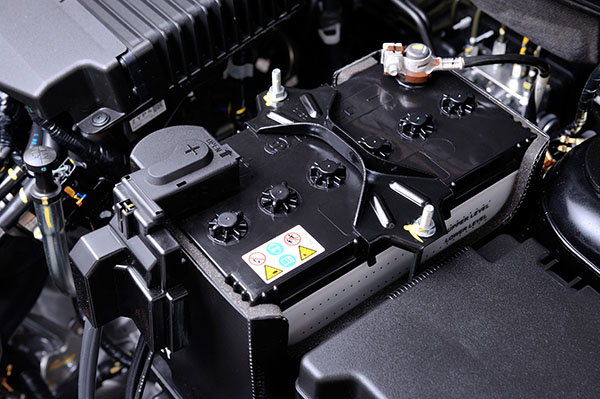
Imagine your vehicle as a living, breathing entity, with its electric components as vital organs, each playing a pivotal role in ensuring a smooth and efficient journey. Neglecting these components isn't just a disservice to your car; it's like ignoring the heartbeat of your automotive experience. In today's electrifying guide, we will go over the five electronic components and systems in your car that demand your attention, care, and admiration. 1. Battery The battery stores electrical energy and ensures that all other electrical systems have the power they need to function. However, batteries are not immortal; they age and eventually lose their ability to hold a charge. To keep this heartbeat strong, routine check-ups are necessary. Look for signs of corrosion on terminals, ensure connections are tight and clean, and replace the battery when it shows signs of ... read more
Posted on 10/30/2023

As you cruise down the road, an important part of your car is silently protecting you from unexpected danger - the seatbelt. The seat belt is not just a required accessory but a vital tool that ensures your safety on every drive. Understanding how it works and implementing proper maintenance practices is not only necessary to meet regulations but also a sincere commitment to your own well-being and that of your fellow passengers. How Do Seat Belts Work? The seat belt, a deceptively simple combination of webbing and hardware, plays a pivotal role in keeping you secure during any drive. Its primary function is to restrain occupants in the event of a sudden stop or collision, preventing them from being thrown forward or ejected from the vehicle. They work in conjunction with other safety features, such as airbags, forming a comprehensive safety net that mitigates the impact of accidents and safeguards ... read more
Posted on 9/29/2023
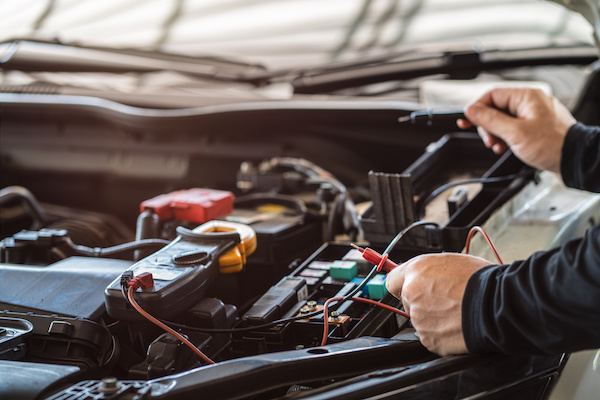
You're cruising down the highway, and suddenly, your headlights start flickering, your radio loses power, and the dashboard lights go dim. Something's amiss with your car's electrical system, and it might just be the alternator. But before you rush to the repair shop, why not play detective and learn how to test if the alternator is the problem? The Vital Role of the Alternator Before we dive into testing, let's understand what the alternator does. Think of it as your car's electrical powerhouse. Its primary job is to generate electricity to power various components, including the battery and the electrical system. It keeps your battery charged while you drive and ensures that your lights, radio, and other electronics work seamlessly. Signs of Alternator Trouble When your alternator is on the fritz, your car will give you subtle hints. Look out for these telltale signs:Dimming Headlights: Your headlights may appear dimme ... read more
Posted on 8/30/2023
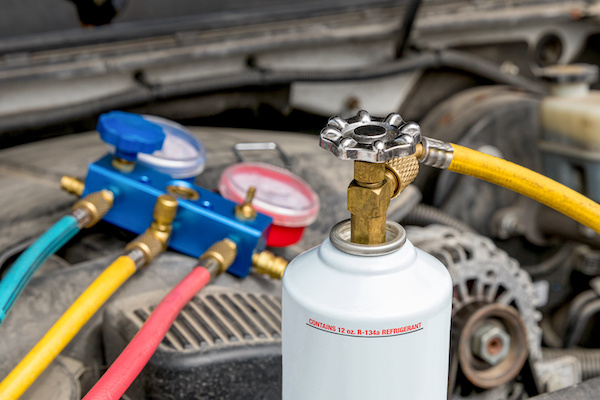
A/C refrigerants are often overlooked but are behind your car's refreshing air. They are compounds responsible for absorbing heat from inside your vehicle and releasing it outside, leaving you with a cabin that feels like an oasis on a scalding day. The choice of refrigerant is crucial, as it affects both your A/C system's performance and the environment. The Evolution of Refrigerants Over the years, the automotive industry has witnessed a transition in A/C refrigerants due to environmental concerns. The most common refrigerant types you might come across are: R-12 (CFC-12): This refrigerant was commonly used in older vehicles but was phased out due to its harmful impact on the ozone layer. R-134a: Introduced as a more environmentally friendly alternative, R-134a became the standard for many years. However, concerns about its contribution to global warming prompted further changes. R-1234yf: The automotive in ... read more
Posted on 7/29/2023
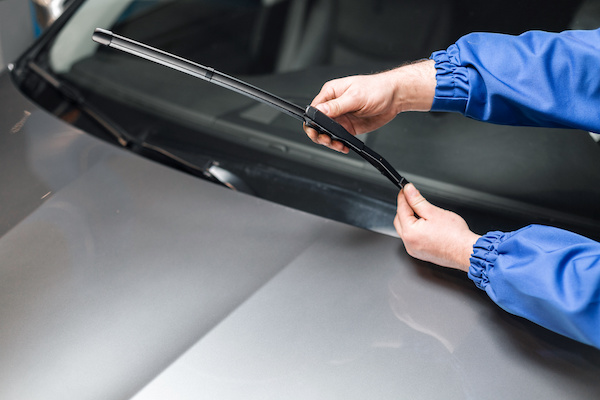
Learning how to perform basic maintenance on your car can save you time and money over time. While some repairs should be left to professionals, every car owner should know several essential DIY car maintenance tips and tricks. Car Maintenance Tips Following these tips regularly will help ensure your vehicle remains in good condition: 1. Change Oil and Filters Regular oil changes are crucial for maintaining a healthy engine. Follow the manufacturer's recommendations regarding oil type and change intervals. Additionally, replace the oil filter during each oil change to ensure optimal filtration of contaminants. 2. Inspect Tires Check tire pressure monthly using a reliable gauge since underinflated or overinflated tires can affect fuel efficiency and safety while driving. Also, inspect tires for any signs of wear or damage, such as bulges or cuts on the sidewall. 3. Replace Worn-Out Wipers Faulty wiper blades reduce visibility during rain or snowstorms, which can be dangerous ... read more
Posted on 6/27/2023

In the warmer months in Charlotte, nature begins its vibrant reawakening, with flowers blooming and trees bursting with leaves. While this is a delightful sight for many, it also means one thing: pollen is in the air. As pollen levels rise, you may find yourself wondering, "Is pollen bad for my car?" The answer might surprise you. Pollen, those tiny, powdery grains produced by plants for reproduction, can indeed have an impact on your vehicle. If left unchecked, it can accumulate on your car's exterior, potentially causing a range of issues. Paint Damage: Pollen contains microscopic particles that, when left on your car's surface, can act like abrasive sandpaper. Over time, this can lead to scratches and damage to your paintwork. If you frequently park your car under trees or in areas with heavy pollen concentration, it's important to regularly wash your vehicle to remove the pollen and protect your paint. Reduced Visibility: ... read more
Posted on 5/31/2023
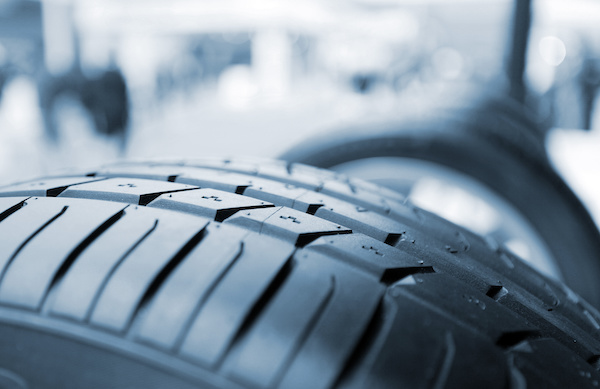
When it comes to our vehicles, we often focus on the engine, brakes, and other mechanical components. However, there's one essential element that keeps us connected to the road and ensures a safe and smooth journey: tires. A good set of tires provides traction, stability, and comfort. But did you know that not all tires are created equal? In fact, there are various types of tires designed to meet specific driving needs and road conditions. If you're in the market for buying tires, you've come to the right place. Here is a guide to the most common types: All-Season Tires As the name suggests, all-season tires are designed to perform well in a variety of weather conditions, including dry, wet, and light winter conditions. They offer a balanced blend of performance, longevity, and comfort, making them popular for everyday commuters. Summer Tires Optimized for warm weather and dry road conditions, summer tires provide superior grip and handling. They feature special ... read more
Posted on 4/30/2023
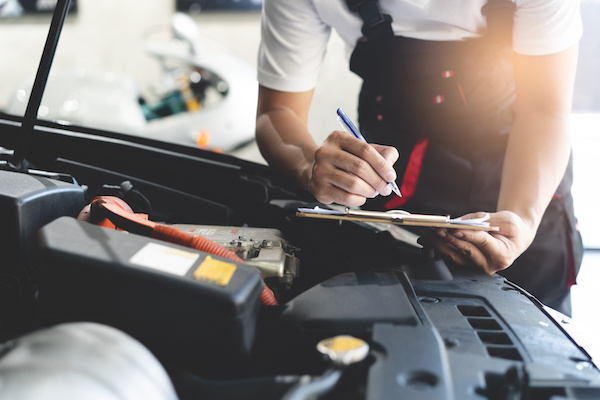
Taking care of your automobile requires several maintenance checks to ensure it works perfectly. Ignoring these services can cause a range of issues from mere discomfort to poor functionality or at worst, car accidents. Short term maintenance These services are frequently done and it takes about a year before you need to do it again. Replace the engine oil and filter. For advice on how far you should commute without oil changes, read your owner's handbook. Most cars have an oil and filter replacement interval of 3,000 to 8,000 miles. Synthetic oil can boost the maintenance interval to 15,000 miles. Change your synthetic oil at least once a year, irrespective of the amount of mileage you drive. Tread depth and tire pressure Because well-maintained tires are an important aspect for safety and fuel effecient trips, you need to routinely check and examine your tires before embarking on a long journey. Check your tire pressure once a month, as well as before lengthy excursions or ... read more
Posted on 3/30/2023
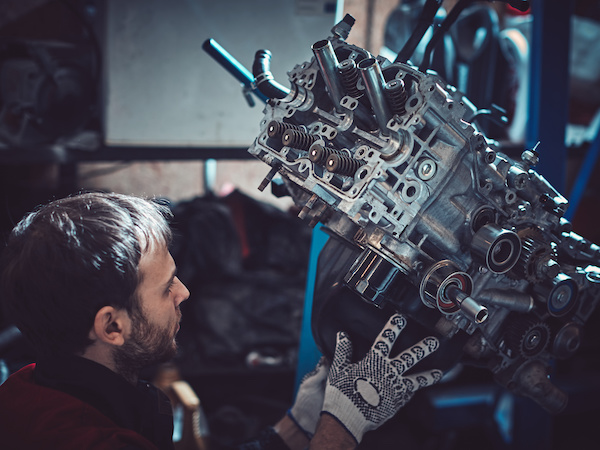
When it comes to auto repairs, one term that you might hear thrown around is "overhaul". But what exactly does it mean, and when do you need it? In this blog post, we'll explore what an overhaul is and when it might be necessary for your vehicle. What is an Overhaul? An overhaul, also known as an engine rebuild, is a comprehensive repair process that involves taking apart and rebuilding the engine of a vehicle. This type of repair is typically done to restore the engine's performance to its original specifications or to improve its performance beyond what it was originally designed for. During an overhaul, the engine is disassembled and inspected, with worn or compromised components being replaced as needed. The parts exchanged can include everything from the cylinder heads and pistons to the bearings and crankshaft. Once all of the necessary repairs have been made, the engine is reassembled and tested to ensure that it is functioning correctly. When Do You Need a ... read more